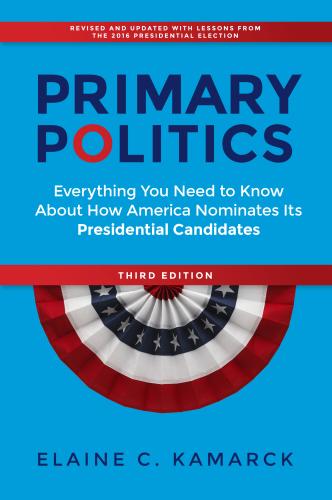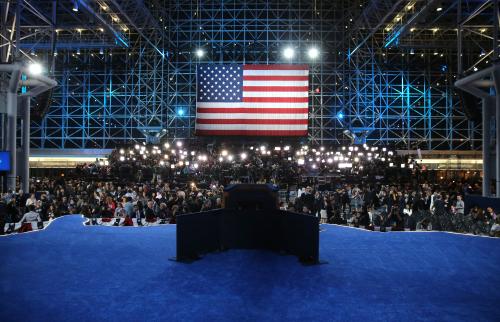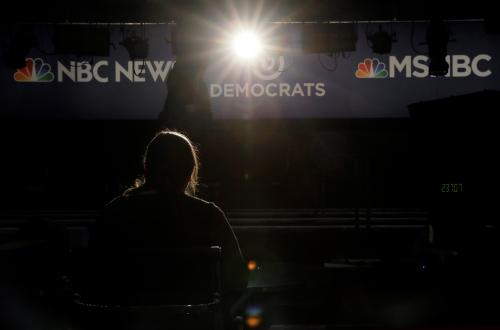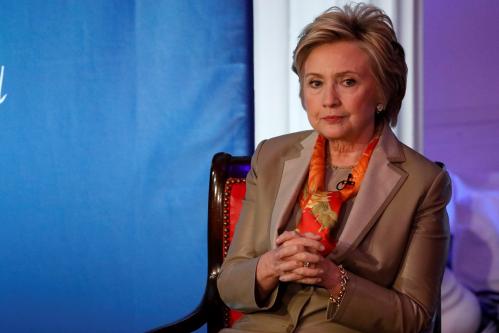The two previous Democratic primary debates had so many contenders that they challenged the patience of even the most loyal political junkies. This week’s Democratic debate will feature half as many: only 10, candidates. The DNC’s process for narrowing the field has gotten a lot of criticism, mostly from those left out of the debates, but it has been fair, open, and transparent. Nonetheless, one critique has been missing. Under the current rules, candidates must show a substantial number of donors and a certain amount of public support; what they don’t have to show is that they can do the job for which they are auditioning—president of the United States.
In both political parties, the modern American system of choosing presidential contenders is wholly lacking in “peer review.” Peer review is a concept commonly accepted in most professions. For instance, in medicine “peer review is defined as ‘the objective evaluation of the quality of a physician’s or a scientist’s performance by colleagues.’”[1] We license plumbers, electricians, manicurists, nurses, and lawyers.
We accept peer review in most aspects of life—except politics.
This feature of modern politics went largely unnoticed until 2016 when the Republican Party found themselves with Donald Trump. Republicans that year faced two equally unpalatable choices—go with the candidate who had brought millions of new voters and new enthusiasm to the party or reject a candidate who had nothing in his background to indicate that he had the temperament or the experience to do the job. They chose the former.
For 140 years prior to 1972 both political parties used some form of peer review to nominate their candidates. Primaries were few and far between; the important decisions were made by elected officials and party officials who chose the delegates. Many of the power brokers knew the would-be presidents personally. Once primaries took over and were binding (more or less) on delegates, would-be presidents were evaluated differently. Suddenly the ability to inspire and communicate became more important than other, more boring aspects of the job. At the dawn of this new era, the late political scientist Nelson Polsby defined those aspects of the job as follows:
- “…intelligence,
- sobriety of judgement,
- intellectual flexibility,
- ability to work well with others,
- willingness to learn from experience,
- detailed personal knowledge of government
- and other personal characteristics which can best be revealed through personal acquaintance.”[2]
And so, while our modern nominating system still attracts serious people who have the aforementioned capacity to govern, it has also attracted a reality television star, a pizza entrepreneur, a talented neurosurgeon, one of the few women CEOs of a major corporation, a famous spiritual advisor, the CEO of a test preparation company, and a hedge fund founder. All of these people are accomplished, but how would those accomplishments translate to the public sector?
The absence of peer review from the nominating contest has led to some situations that would have left our forefathers scratching their heads in confusion. The first Democratic debate had a spiritual advisor on stage but did not include two-term Montana governor, Steve Bullock—a man who served as state attorney general and as head of the National Governors Association. It is fair to say that in a system containing some element of peer review Steve Bullock would have made the cut and Marianne Williamson would not. In the upcoming third debate, Governor Jay Inslee of Washington State, a two-term governor, a former member of Congress, and a nationally renowned expert on climate change and technology did not make the cut and dropped out of the race. But Andrew Yang, a wealthy philanthropist with no public sector experience, will be on stage.
When Franklin Roosevelt, governor of New York (then the nation’s largest state) ran for president in 1932 he did not have to appear on a debate stage with Clark Gable, one of the biggest movie stars of the 1930s, or with Charles Lindbergh, the first man to fly solo over the Atlantic Ocean and an international celebrity. When Republicans sought out Dwight Eisenhower for the Republican nomination in 1952, the man who had commanded Allied Forces in the victory in Europe—a job requiring enormous intelligence, sobriety of judgement, and everything on Polsby’s list—they did not force him to appear on a debate stage with Rock Hudson, one of the biggest stars of his day.
Running for president should not be about increasing your book sales or getting a gig on CNN or Fox News. Candidates with no background in government tend to divert attention from real solutions to problems by promoting ideas that are too simple and too good to be true. Remember Herman Cain’s 9-9-9 tax plan in the 2012 Republican primaries, or Donald Trump’s plan to make Mexico pay for a border wall in the 2016 primaries? Do we really need to hear about a plan to give $1000 a month to everyone in the United States or about the power of love and meditation to solve our problems?
Of course not.
Elaine C. Kamarck is a Senior Fellow at the Brookings Institution and author of Primary Politics: Everything You Need to Know about How America Nominates Its Presidential Candidates. She is a member of the Democratic National Committee and a superdelegate to the Democratic convention.
[1] Lamk Al-Lamki. Peer Review of Physicians’ Performance: Is It a Necessary Quality Assurance Activity? Sultan Gaboos U. Med. J. 109, 109 (2009). Retrieved from: https://www.ncbi.nlm. nih.gov/pmc/articles/PMC3074768/ [quoting: Joseph Segen et al. eds. “Peer Review.” McGraw-Hill Concise Dictionary Of Modern Medicine. 2006.]
[2] Nelson w. Polsby. Consequences of Party Reform. 1983, Pages 169–70.








Commentary
Qualifying for the debate: The lost role of peer review
September 11, 2019